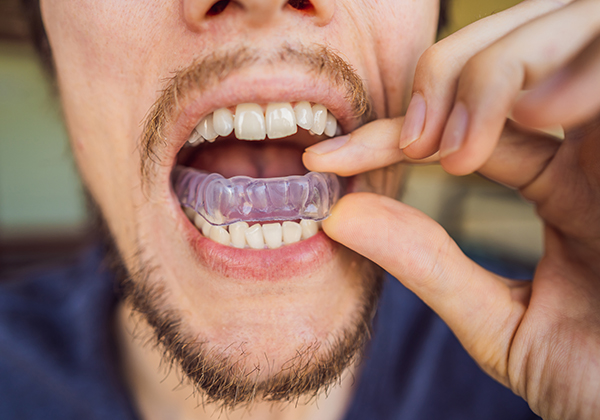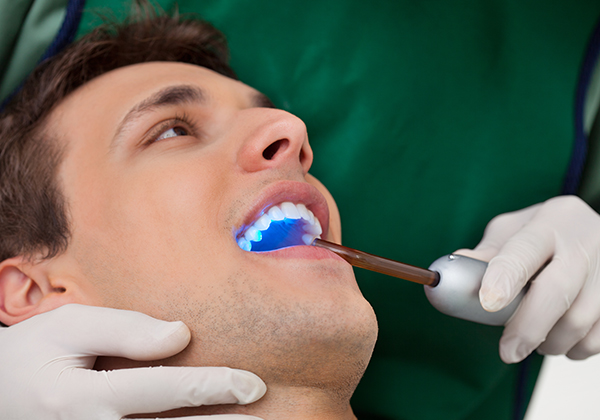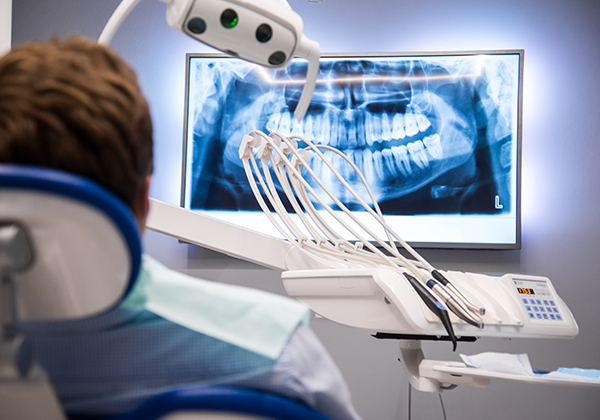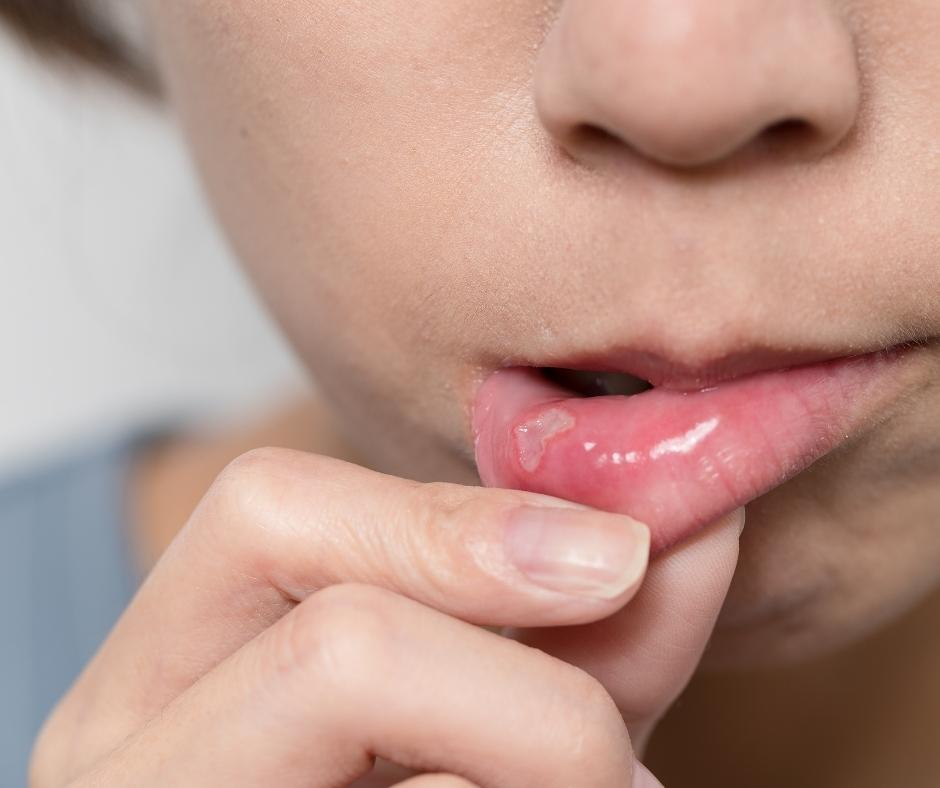Also known as tooth grinding, bruxism causes damage to your teeth by wearing down tooth enamel, weakening fillings and crowns, creating sensitivity, causing jaw pain, and effecting your smile over time. In some cases, it can even cause headaches. Bruxism that is left untreated can lead to fractured or chipped teeth or even permanent teeth loss, while also increasing the risk of tooth decay. If grinding your teeth becomes a nightly occurrence, our team of general dental professionals will thoroughly examine the health of your teeth, cheeks, and gums to determine the severity of the grinding and whether you will benefit from a custom-made nightguard. In certain cases, your general dentist may recommend that we repair the damage to your teeth before fitting you for a bruxism nightguard.
Some of the most common signs of bruxism are:
- Painful or stiff jaw
- Sensitive, loose, or broken teeth
- Sore gums
- Sores on the insides of your cheeks
- A popping sound in the jaw joint
- Morning headaches
- Worn-down teeth
- Fatigue caused by restless sleep










